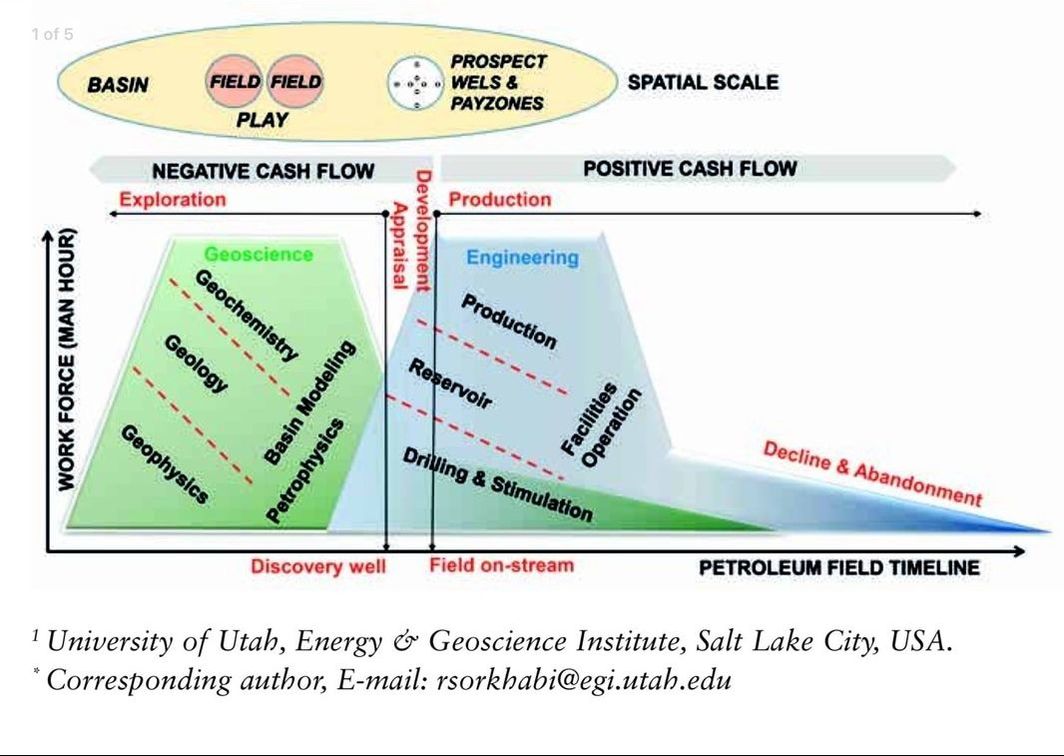Geologist
What does petroleum geologist do?
What does petroleum geologist do?
- Prospects Petroleum geologists are scientists that work to discover new oil and gas deposits.
The geologist put skills in geology, chemistry and many fields to the practical task of locating energy sources. Prospecting is the work the petroleum geologist does to locate a place to drill a test hole which spend 90% of time in an office to analyze a huge amount of data. - Sells the deal When the geologist found the best location they have to make a rough of data into a maps of some presentation that easy to understand for selling and convincing it to people who are not geologist such as managers or engineers
- Monitors the Drilling of the Test The geologist will closely monitor all aspects of the drilling.
And use electric logging to collect the data from well for analyze rock formation. - Work with engineer to complete the well When hole is drilled! At this time, a decision must quickly because this part costs are extremely expensive. At last they will relay the information to petroleum engineer and working with them as a team to get a new well.
Engineer
what does petroleum engineer do?
Petroleum engineers design and develop methods for extracting oil and gas from deposits below the Earth’s surface. Petroleum engineers also find new ways to extract oil and gas from older wells.
Petroleum engineers generally work in offices or in research laboratories. However, they also must spend time at drilling sites, often for long periods of time.
Petroleum engineers generally work in offices or in research laboratories. However, they also must spend time at drilling sites, often for long periods of time.
HOW RELATIONSHIP BETWEEN GEOLOGIST AND PETROLEUM ENGINEER
Written by
|

